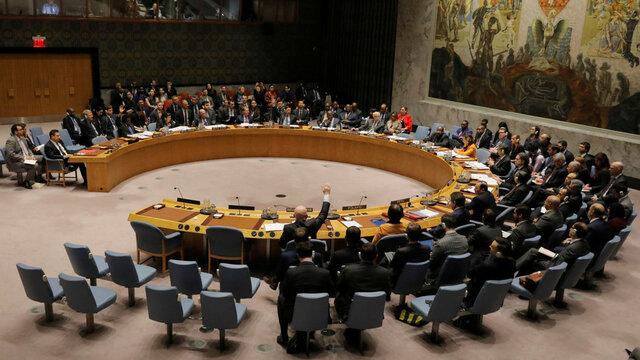Dr. Gholamreza Khaji, in an interview with the website of the Strategic Council on Foreign Relations, referred to the serious accusations made by the United Nations Commission of Inquiry against Russia in connection with the war in Ukraine, including attacks on civilians and civilian infrastructure, intentional murder, illegal detention, torture and abduction of children and clarified: The Commission announced that the Russian army had committed war crimes in Ukraine. However, there is no evidence that this crime of genocide has been committed. The UN Human Rights Council chose the members of the Commission, and the Council is not legally considered in the UN structure, and its approvals do not have a solid legal basis.
He added that when reforms were raised in the United Nations, this Council was replaced by the Human Rights Commission. The Human Rights Commission was removed due to political and unprofessional performance, and the Human Rights Council replaced it. Still, the Human Rights Council does not have a clear legal position in the United Nations. Although this Council was not supposed to replace the International Criminal Court from the beginning, they have designed a court-like system for the Council. In this situation, such duties are not considered for the Human Rights Council, and the General Assembly should clarify its situation by preparing a resolution.
The professor of international law, referring to the lack of the assignment of the statute of the Human Rights Council, lack of clarity in the guarantee of enforcement, and also the political treatment of the cases, said: The UN General Assembly does not vote for the Security Council’s supervision over the Human Rights Council in the current situation; because the Security Council has not left a good record and it seems that this Council will be under the supervision of the United Nations General Assembly. According to Article 12, this Assembly does not have the required powers.
Khaji assessed the formation of the Commission to investigate “Russian war crimes” by the Human Rights Council as a political action aimed at putting pressure on Moscow and continued: Unfortunately, in recent years, we have witnessed the massacre and displacement of a large portion of the population in countries such as Iraq, Yemen, and Syria. We have seen the “stolen generation” crime in Canada and Australia! These are clear examples of human rights violations that have been thoroughly documented. There are hundreds of priorities for examining human rights issues.
Emphasizing that international legal organizations should investigate the real causes of the beginning of the war in Ukraine and the main factors that caused the outbreak of this war, he explained the role of NATO and the long-term plan of the United States to increase military and security pressure on Russia and suppress the Russians in Ukraine. He added that such issues should be considered if a commission investigates the war in Ukraine. But what we witnessed is only in line with exerting political pressure on Russia.
Referring to the decision of the Commission of Inquiry of the United Nations Human Rights Council regarding Russia’s attacks on Ukraine’s energy supply facilities as a “crime against humanity,” the analyst of international law noted that the definition of international crimes is clear and this decision cannot be a legal basis for a global decision. But unfortunately, when Western countries get desperate, they misuse technical and legal terms in line with their interests and offer another interpretation.
Unilateral US and EU sanctions against nations are to be “international crimes.”
Emphasizing that the crimes committed by both sides in the Ukraine war should not be ignored, Khaji reminded: If we want to define the exact international crime, all self-imposed and unilateral sanctions of the United States and the European Union against nations are international crimes, and should be filed for all of them in such commissions. What we are witnessing in such organizations today is discriminatory and political behavior that not only does nothing to create international stability and peace; instead, it causes an escalation of conflicts and hardening of the international atmosphere.
He pointed to the submission of the arrest warrant of the International Criminal Court against the Russian president. He said: Such measures are psychological and political warfare against Russia. Western countries have intensified this practice in the past decade, taking drastic, irrational, and unilateral actions. That too in a situation where no charges have been made, and they have presented a verdict unilaterally.
Explaining the consequences of the political actions of international technical and legal organizations, the professor of international law emphasized: We are witnessing the decline of the role of international organizations and the more vital role played by regional organizations. As we have repeatedly seen this issue regarding the continent of Africa and Latin America, they insist on solving their problems regionally; because public credibility and trust in the United Nations have been lost. In all the years from 1945 to 2022, the Security Council decided to attack only twice, once against Korea and once against Iraq; both times, US interests were at stake! Now everyone knows that such actions of the United Nations are political, and its outcome has only benefited a few Western countries and the Israeli regime.










0 Comments